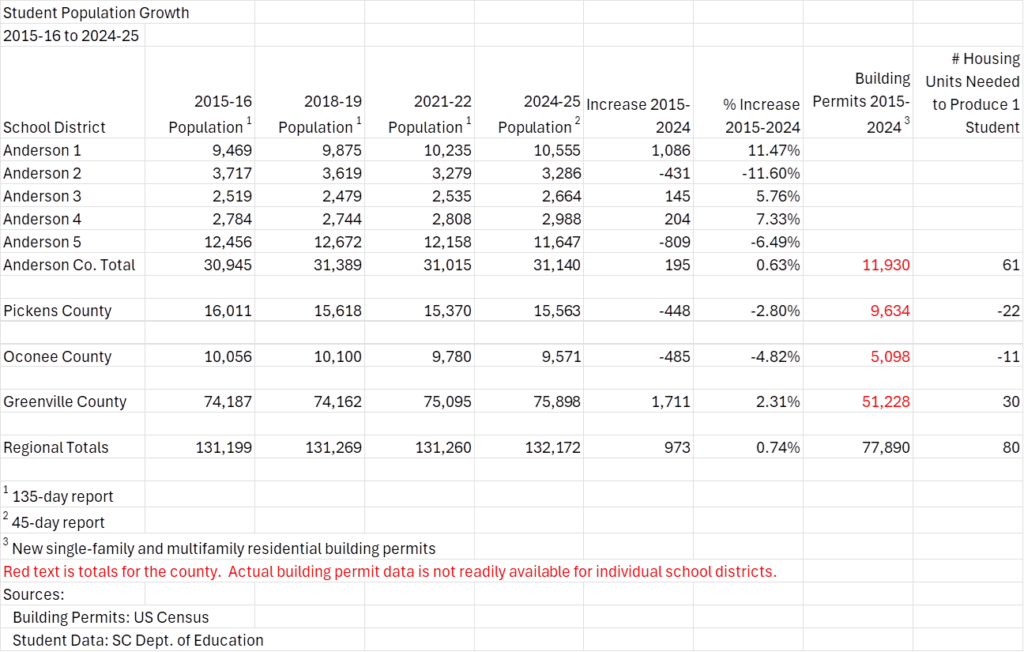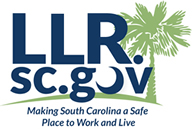Hello REALTORS®,
Proposed Anderson County Moratorium
This week, Anderson County Council is expected to vote for a second time on a moratorium on new housing developments of 25 units or more. You association opposes moratoriums in part because they tend to be in response to an overstatement of growth. They also deny property owners their right to due process by refusing to accept an application for a permit that is required by the government.
So, just how much is Anderson County growing? Let’s look at the data.
Population
Anderson County, like the rest of the Upstate, is growing—50,192 people have moved into the county since 2000 according to the US Census Bureau. That’s a 30% increase. But, if you look at the data, that’s slower than the growth rate for the region, and slower than neighboring Greenville County. And, according to the data, the rate of growth is slowing both in Anderson County and the region.
We should acknowledge that our population is growing faster than the US, but that is true across South Carolina.

School Population
There are several ways that a growing population impacts our region. Obviously, new housing is one of those. Increased traffic is another. But an increased student population is also being cited as a problem. So, how much are our local school districts growing because of 50,000 new people moving to, or being born in, Anderson County? We don’t have access to the data back to 2000, but we do have data for the last 10 years
Overall, student population grew by less than 1% during the last 10 years—just 195 new students. One school district, Anderson 1, is responsible for nearly all the growth while two school districts lost students.

Anderson County’s experience is like the rest of the Upstate—strong growth in some areas and shrinking population in other areas. That’s what makes countywide proposals like a moratorium so challenging—it tries to address a perceived problem in a small area at the expense of the rest of the county. Which is why reviewing the data is so important.
Support RPAC
RPAC is an important element of your Realtors Association’s advocacy program. I encourage you to support RPAC and we make it easy to do so—we include a voluntary RPAC contribution on your annual dues renewal. Simply pay it and you have support RPAC. If you want to do more, it’s easy.
Michael Dey, Director of Government Affairs



